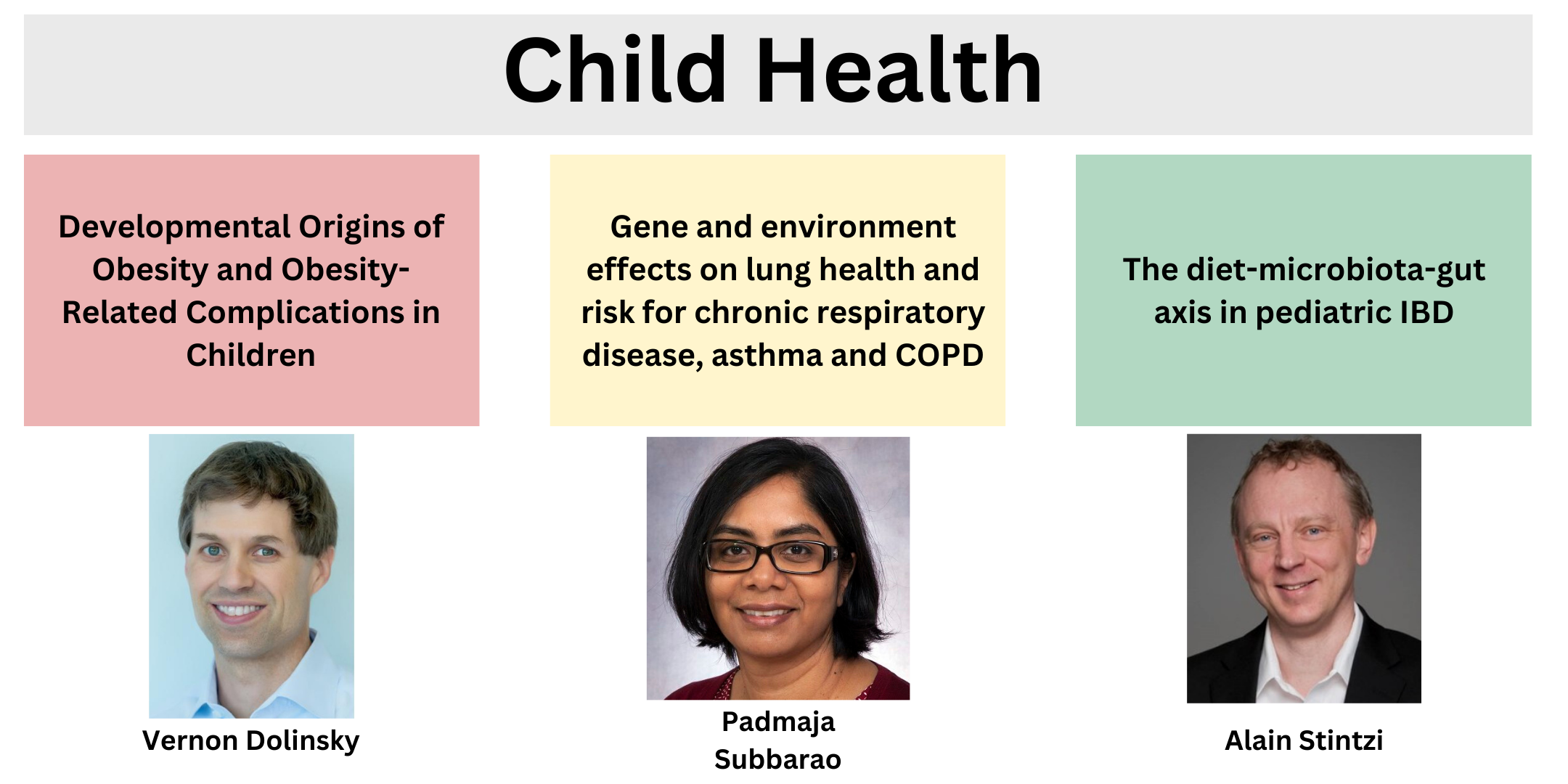- Location
- Zoom
- Series/Type
- CANUE Event, DLSPH Event, Faculty/Staff Event, Seminar
- Format
- Online
- Dates
- April 3, 2023 from 2:00pm to 3:00pm
Links
Children’s health is particularly sensitive to the environment. What they are exposed to during early years can have a significant impact on their healthy development. To better understand these health pathways and how to improve children’s health outcomes, the Canadian Institutes of Health Research funded three research projects considering different aspects of child health: obesity, IBD and asthma & COPD. In this webinar, learn what the researchers discovered through their project and what they plan to do next.
About the Projects
The Developmental Origins of Pediatric Obesity and Obesity-Related Complications
This translational project studies clinical populations of pregnant mothers, their children and parallel rodent model systems in order to determine how early life environmental exposures (e.g.- maternal diets, high blood sugars etc.) affect the genes of the children to influence their risk for obesity. We will also determine whether altering the early life environment (e.g.- through diet etc.) modifies disease risk factors in children most susceptible for obesity. The identification of new early life biomarkers of disease could prevent the extensive health and financial burden of obesity.
Gene and environment effects on lung health and risk for chronic respiratory disease, asthma & COPD
This project studies a group of babies that have been followed since birth, whose families have filled out lots of questions about what they eat, breathe and how often they get sick. These kids and their families have also done breathing tests that measure how well their lungs are doing. From studying all of this information, we believe we can discover what things each person can do to improve their lungs and prevent them from getting chronic breathing problems, making Canada the healthiest place to live.
The diet-microbiota-gut axis in pediatric IBD
This research program investigates the complex interactions among diet, the gut microbiota, and the host. It provides information that may be essential for personalized dietary and microbiota changes required to keep people with inflammatory bowel disease (IBD) in remission. It is well accepted that the gut microbiota plays a crucial role in the digestion of food, particularly plant-derived starches, and the production metabolites essential for human health. The primary objective of the proposed research is to investigate the complex tripartite interactions between the diet, the gut microbiota, and the host. Additionally, this study aims to characterize the role of microbial food-derived metabolites in pediatric IBD. This study will generate the information necessary for developing methods to improve bacterial activities in our intestine as treatment for IBD patients. This research will have important implications for the quality of life of people with IBD everywhere.
